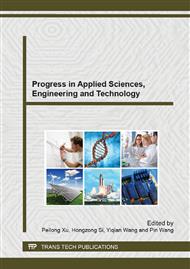p.3608
p.3612
p.3616
p.3621
p.3625
p.3629
p.3633
p.3637
p.3641
Improved LAMBDA Algorithm Applied to Attitude Determination
Abstract:
Under the short observation epoch, due to the impact of various noise, the ambiguity float solution accuracy is poor, seriously affecting the proper follow-up ambiguities fixed . This paper proposes the use of baseline length and pitch angle restriction to solve the ambiguity float solution., which Improved the accuracy of ambiguity float solution within a short time .And on the basis of ambiguity candidates which obtained by using conventional LAMBDA algorithm, we utilize baseline length and orientation angle as condition to check up ambiguity candidates individually, compared to conventional LAMBDA algorithm, the proposed method greatly improves the success rate of correct ambiguity fixed, and according to simulation experiments, under the single epoch circumstances, the success rate of correct ambiguity fixed by improved method is approximate to 98%.
Info:
Periodical:
Pages:
3625-3628
Citation:
Online since:
May 2014
Authors:
Keywords:
Price:
Сopyright:
© 2014 Trans Tech Publications Ltd. All Rights Reserved
Share:
Citation:


